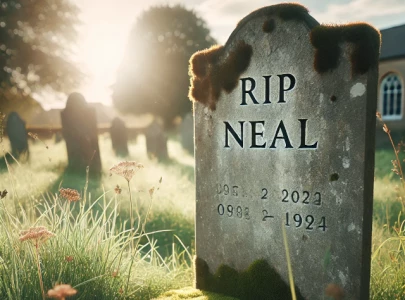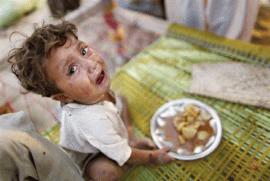
A mother of three, Maryam is one of the women who make up less than one percent of Afghanistan's National Police. They wear knee-length olive green skirts over thick trousers with navy hijabs.
The 22-year-old's eyes light up when she talks about her job, one widely viewed in deeply conservative Muslim Afghan society as off-limits for women.
This sentiment is shared by her father, who has stopped speaking to her and moved out of the family home because she works in an office with men who are not relatives.
"I am serving my country, which needs kind, honourable and honest women who are able to solve specifically women's problems. We need policewomen as well as men," Maryam, who only gave her first name, told Reuters.
"With this job, you get to feel like a human being in this society. I love it," she added, enthusiastically gesturing her manicured hands in a small room in the heavily barricaded Interior Ministry in Kabul, which has been repeatedly bombed in recent years by Taliban insurgents.
Women number up to 1,000 of Afghanistan's 126,000 police officers. Afghan officials and the West, who do most of their training, say female police fill much-needed gaps in a society where the two sexes must often be separated.
President Hamid Karzai has said he wants 5,000 female police officers by the end of 2014, the date when the NATO-led force fighting Taliban insurgents in Afghanistan plans to hand over all security responsibilities to the Afghans.
They are crucial for security checks, where the vast majority of women police work, including Maryam. They search and pat down women in the curtained huts fronting many of Afghanistan's buildings. All are trained to use guns.
Many are also taught to deal with child and female abuse, and have learned basic combat and self-defence. Maryam now wants to learn how to read and write, to move up in the ranks and work in the courts.
"A police force is not complete without women," said Hasibullah Kobadyani, a tall and lanky Afghan colonel who oversees the training of women.
"It is also important to give women a voice. To let women know that they can speak about crimes in a way they know is safe. This is better for keeping their honour," said the colonel, who had just fathered his seventh daughter.
Staggeringly low literacy rates, running at 14 percent of the force, remains a major challenge for police trainers.
Colonel Hasibullah said it is even lower among women.
The task of finding women has become even more important as Western forces prepare to begin handing over security in seven areas from next month, when U.S. President Barack Obama will also begin a gradual drawdown of U.S. troops.
Wearing a burqa over uniform
Recruitment is not easy however. Women are scared off by social unacceptance, disapproval by their families and even abuse within the force and from men they encounter on the job.
Maryam's father told her their relationship could be saved if she quits her job.
But Maryam is undeterred. Three years ago she ran away from her husband after a decade of physical and sexual abuse in the southern province of Helmand. "I was constantly afraid of him as he always wanted me. He was like a madman," she said.
Her husband joined the insurgents in Helmand, a Taliban stronghold, giving her the final push to escape to Kabul, where she worked as a cleaner.
Then 16 months ago, she saw a television advertisement encouraging women to join the force. "It said women can do all the work men do in the police. I decided to apply."
"I feel so much safer now, and am finally happy," she said as she adjusted the hijab covering her black hair, highlighted with blonde.
With her monthly salary of 10,000 Afghanis ($220), she manages to support her mother, her three children from her husband and her dowry, which she still must pay off even though she considers herself a widow. Her salary is substantial in a country where more than 40 percent live below the poverty line.
For others even bigger hurdles stand in their way.
"There are some who come to work in a burqa over their uniform as even their families and neighbours do not know what they do," said Apolonia Bos, a member of the Dutch police force and human rights and gender mentor from EUPOL, the European Union's police mission in Afghanistan.
The head-to-toe burqa is especially popular for policewomen going to work in the Taliban strongholds in the south and east, she said.
EUPOL has been training women since they began their mission in Afghanistan in 2007, and focuses on medium- and senior-level police work once recruits have been through a six-week NATO basic training course.
Maryam said her male colleagues protect her from inappropriate touching from men outside the force, but added "of course I have heard from other girls that they have been touched by their male colleagues, or been harassed".
She said a hotline set up a year ago by EUPOL, where women can call and complain about such abuse, has been popular among the women.
"We must build the trust that Afghan women have in their government," said Joke Florax, an inspector from Amsterdam who trained Maryam.






1731325890-0/trump-(24)1731325890-0-270x192.webp)



1732954110-0/Untitled-design-(13)1732954110-0-270x192.webp)






COMMENTS (4)
Comments are moderated and generally will be posted if they are on-topic and not abusive.
For more information, please see our Comments FAQ